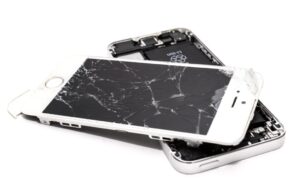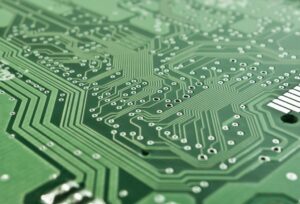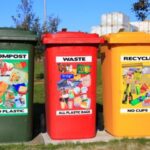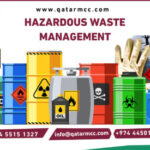Electronic waste takes up a huge space of today’s overall waste worldwide, increasing its threat to society and all of its living creatures. Many countries including Qatar are taking the necessary steps to recycle e waste properly and come up with sustainable solutions for handling electronic waste in all of its hazardous waste types. Check out our blog post as it covers everything about e-waste; its definition, examples, harmful impact, ways of recycling, and the positive impact of recycling e-waste continuously.
What is E-Waste?

Before we dive into the details of e-waste, it is important to define e waste clearly. E-waste (Electronic Waste) refers to electronic devices and machines that are no longer needed or used. Any device or machine that runs on electricity or batteries is considered to be a type of e waste once it’s no longer used by anyone.
E-waste is one the emerging fields of waste management because the world produces tons of it on a yearly basis with the technological advancements that are taking place rapidly in our world.
E-waste produces harmful chemicals which require serious care and handling by e waste professionals who know the steps of recycling e waste successfully.
Examples of E-Waste
Here’s a list of electronic devices that are examples of e-waste once they’re discarded:
- Smartphones
- Laptops and computer
- Batteries
- Chargers
- Fridges
- Tablets
- Televisions
- Printers
- Gaming consoles and electronic games
- Digital cameras
- Camcorders
- MP3 players
- Audio devices
- Small kitchen appliances, such as microwaves, toasters, and blenders
- Medical equipment like X-ray machines and ultrasound equipment
- Office equipment
The Impact of E Waste

E-waste can have several negative impacts on both the environment and human health. Here are some of the main impacts of e-waste:
- Environmental pollution: When e-waste is not disposed of properly, it can release hazardous materials into the environment, leading to the contamination of soil, water, and air, hence, harming plants, animals, and individuals.
- Resource depletion: E waste includes useful materials, such as gold, silver, copper, and palladium, which can be extracted and reused through recycling. However, when e-waste is not recycled, these materials are lost, and new resources must be mined from the earth to manufacture new devices.
- Health risks: The toxic elements released by e waste can pose significant health risks to humans, mainly to those working in the initial process of collecting and recycling e-waste. Those individuals could suffer from respiratory illnesses and skin problems.
- Digital divide: The improper disposal of e-waste can worsen the digital divide globally by restraining access to technology in some places of the world where the use of technology is already limited.
E-Waste Recycling
E-waste recycling is the process of disposing of and reusing electronic devices that have reached the end of their life.
The process of electronic waste recycling typically involves the disassembly and separation of electronic devices into their component parts, which can then be reused or recycled. Some useful metals can be recovered from the process of recycling, such as gold, silver, and copper, as well as the disposal of hazardous components, such as lead, mercury, and cadmium, in an environmentally friendly way.
E-waste recycling is vital because it helps in reducing the amount of electronic waste that ends up in landfills, which can be harmful to the environment and human health. It also helps to conserve natural resources by minimizing the need for fresh raw materials in the production of electronic devices.
Parts of Electronic Waste that can be recycled

In the process of recycling e waste or e-scraps, some items and elements can be recovered and used in manufacturing new electronics. Here are some of these parts:
- Plastic
- Metal
- Glass
- Minerals like silver and gold
- Mercury
- Circuits boards
- Hard disks and memory cards
- Batteries
- Wires
Process of Recycling E-waste Safely
You might be wondering how e-waste is recycled exactly. Well, the process of recycling electronics varies depending on the device itself and the desired process. However, here is a general process of e-waste recycling:
- Collection: Electronics are collected from households, businesses, and other places.
- Sorting and dismantling: The e-waste is sorted into distinct categories based on the type of device and its components. It is then dismantled into its component parts, such as metals, plastics, and circuit boards.
- Shredding: Some components may be torn into pieces to simplify manufacturing.
- Separation: The shredded e-waste is then subjected to various separation techniques, such as magnetic separation, air classification, and screening, to separate the different materials from each other.
- Purification: Some materials, such as metals, may require purification to exclude impurities before they can be reused.
- Recycling or disposal: The separated materials are then recycled or disposed of in an environmentally friendly way. Materials like plastics and metals can be reused in new products, while hazardous materials like batteries and cathode ray tubes may be handled and disposed of according to firm rules.
Advantages of Recycling E-waste
Electronic waste disposal for recycling offers many benefits to the environment, humans, and living creatures, such as:
- The conservation of natural resources for future use
- Reducing the amount of electronic waste that is discarded by individuals and businesses
- Recovery of valuable elements and components like gold, silver, and minerals
- Creating a sustainable future for the coming generations by creating electronics
- Minimizing the effects of greenhouse gas effects, hence the impacts of global warming
E-waste Management Solutions in Qatar
Qatar launched many initiatives to combat global warming and the increase in electronic waste by implementing strict rules and regulations in the field of e-waste management and recycling.
If you are looking for electronic waste pickup services in Qatar then we encourage you to contact Qatar MCC to get our trucks moving to your desired location and transport the electronic waste you want to dispose of.
Placing garbage bins in your workspace or household is essential for electronic waste disposal so make sure to check some of MCC garbage bins and our waste management services to help you enjoy a cleaner environment. Also, our skips are available for rent in many sizes like these ones:
Till now, we provided you with all the essential information on e-waste management and we encourage you to keep an eye on MCC blog for new blog posts like food waste management and others.



